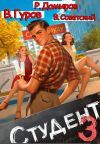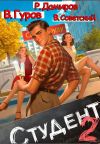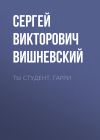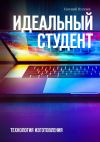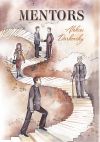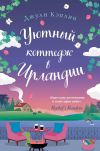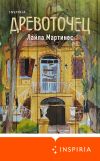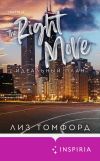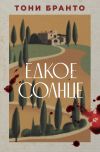
Автор книги: Радмила Шарифьянова
Жанр: Языкознание, Наука и Образование
Возрастные ограничения: +12
сообщить о неприемлемом содержимом
Текущая страница: 6 (всего у книги 18 страниц) [доступный отрывок для чтения: 6 страниц]
The role of literature in shaping our worldview
Interviewer: Hello everybody! It’s Teenagers Round the World Channel. Our guest today is a teenager from Russia and we are going to discuss the role of literature in shaping our worldview. We’d like to know our guest’s point of view on this issue. Please answer five questions. So, let’s get started.
Interviewer: How has reading influenced your perception of the world around you?
Student: _________________________
Interviewer: Do you think that literature can help individuals become more socially aware? Why or why not?
Student: _________________________
Interviewer: In what ways do you think reading can broaden one’s horizons?
Student: _________________________
Interviewer: Do you believe that books can help promote understanding between different cultures and communities? Why or why not?
Student: _________________________
Interviewer: What is your favorite book that explores important social issues? Why do you think it is an important read for young people?
Student: _________________________
Interviewer: Thank you very much for your interview.
Sample answer
Interviewer: How has reading influenced your perception of the world around you?
Student: Reading has greatly influenced my perception of the world around me by exposing me to different cultures, perspectives, and experiences. It has allowed me to understand and empathize with people from all walks of life, and to gain insight into issues that I may not have otherwise been aware of.
Interviewer: Do you think that literature can help individuals become more socially aware? Why or why not?
Student: Yes, I believe that literature can help individuals become more socially aware by providing a lens through which to examine and understand social issues. By exploring themes such as race, gender, class, and identity, literature can encourage readers to reflect on their own beliefs and biases and to engage in meaningful conversations about these important topics.
Interviewer: In what ways do you think reading can broaden one’s horizons?
Student: Reading can broaden one’s horizons in many ways. It can expose readers to new ideas, cultures, and perspectives, allowing them to break out of their own echo chambers and expand their understanding of the world. It can also improve critical thinking skills and empathy, as readers are forced to consider multiple viewpoints and understand the motivations of different characters.
Interviewer: Do you believe that books can help promote understanding between different cultures and communities? Why or why not?
Student: Yes, I believe that books can help promote understanding between different cultures and communities by providing a means for sharing stories and experiences. By reading about the lives of people from different backgrounds, we can better understand and empathize with their struggles and triumphs. Additionally, literature can highlight the shared humanity that unites us all, despite our differences.
Interviewer: What is your favorite book that explores important social issues? Why do you think it is an important read for young people?
Student: Another book that explores important social issues is «Crime and Punishment» by Fyodor Dostoevsky. This novel delves into themes such as morality, guilt, and redemption in the context of 19th century Russia. It encourages readers to consider the consequences of their actions and to question societal norms and values. It is an important read for young people as it promotes critical thinking and self-reflection, while also offering a glimpse into the complexities of human nature.
The importance of reading for academic success
Interviewer: Hello everybody! It’s Teenagers Round the World Channel. Our guest today is a teenager from Russia and we are going to discuss the importance of reading for academic success. We’d like to know our guest’s point of view on this issue. Please answer five questions. So, let’s get started.
Interviewer: How has reading helped you perform better academically?
Student: _________________________
Interviewer: Do you think that reading can help individuals advance in their careers? Why or why not?
Student: _________________________
Interviewer: In what ways can reading help individuals develop critical thinking skills?
Student: _________________________
Interviewer: How can schools encourage students to read more?
Student: _________________________
Interviewer: What are the benefits of reading academic literature outside of school?
Student: _________________________
Interviewer: Thank you very much for your interview.
Sample answer
Interviewer: How has reading helped you perform better academically?
Student: Reading has helped me perform better academically in many ways. Firstly, it has expanded my vocabulary and improved my language skills, which has made it easier for me to understand and analyze texts. Secondly, it has exposed me to different perspectives and ideas, which has broadened my knowledge and enabled me to think critically about different issues. Finally, it has enhanced my memory and concentration abilities, which has helped me retain and recall information more effectively during exams and assignments.
Interviewer: Do you think that reading can help individuals advance in their careers? Why or why not?
Student: Yes, I strongly believe that reading can help individuals advance in their careers. This is because reading enables individuals to stay up-to-date with the latest developments, trends, and innovations in their field, which is crucial for career growth and progression. Furthermore, reading can provide individuals with new insights and ideas that they can apply in their work, leading to greater creativity and innovation. Finally, reading can help individuals develop strong communication and interpersonal skills that are highly valued in most professions.
Interviewer: In what ways can reading help individuals develop critical thinking skills?
Student: Reading can help individuals develop critical thinking skills in various ways. Firstly, it exposes individuals to a wide range of viewpoints and perspectives, enabling them to evaluate arguments and evidence from different angles. Secondly, it requires individuals to analyze and interpret complex information, helping them to identify patterns and connections that might not be immediately obvious. Finally, reading encourages individuals to question assumptions and challenge established knowledge, which is essential for developing a skeptical and analytical mindset.
Interviewer: How can schools encourage students to read more?
Student: There are several ways that schools can encourage students to read more. Firstly, they can create a culture of reading by providing access to a wide variety of books and other reading materials that cater to different interests and preferences. Secondly, they can incorporate reading into the curriculum in a way that is engaging and relevant to students’ lives. For example, they can assign books that relate to current events or social issues that students care about. Finally, they can incentivize reading by offering rewards or recognition for students who read a certain number of books or achieve high levels of literacy.
Interviewer: What are the benefits of reading academic literature outside of school?
Student: Reading academic literature outside of school has many benefits. Firstly, it allows individuals to deepen their knowledge and expertise in a particular subject area, which is particularly useful for students who are interested in pursuing further studies or careers in that field. Secondly, it exposes individuals to new theories, concepts, and research findings that might not be covered in a school curriculum, enabling them to stay ahead of the curve. Finally, it provides individuals with opportunities to engage with other scholars and experts in their field, helping to build connections and networks that can be valuable in their future career paths.
The impact of modern technology on literature
Interviewer: Hello everybody! It’s Teenagers Round the World Channel. Our guest today is a teenager from Russia and we are going to discuss the impact of modern technology on literature. We’d like to know our guest’s point of view on this issue. Please answer five questions. So, let’s get started.
Interviewer: How has technology changed the way you read books?
Student: _________________________
Interviewer: Do you think that e-books have made reading more accessible to young people? Why or why not?
Student: _________________________
Interviewer: In what ways do you think technology can enhance the reading experience?
Student: _________________________
Interviewer: Do you believe that traditional books will ever become obsolete? Why or why not?
Student: _________________________
Interviewer: What is your opinion of audiobooks? Do they offer an effective alternative to traditional reading?
Student: _________________________
Interviewer: Thank you very much for your interview.
Sample answer
Interviewer: How has technology changed the way you read books?
Student: Technology has completely changed the way I read books. Instead of carrying around heavy textbooks or novels, I can now access all kinds of literature on my phone, tablet, or e-reader. This has made it much more convenient for me to read whenever and wherever I want. Additionally, technology has allowed me to easily look up definitions, translations, and background information while I’m reading, which has greatly enhanced my understanding and enjoyment of the text.
Interviewer: Do you think that e-books have made reading more accessible to young people? Why or why not?
Student: Yes, I think that e-books have made reading more accessible to young people. E-books are often cheaper than traditional books, making them more affordable and accessible to those with limited financial resources. Additionally, e-books can be downloaded instantly, making it easier for young people to obtain books without having to physically go to a bookstore or library. Finally, e-books can be read on electronic devices that young people are already using in their daily lives, such as smartphones and tablets, making them more attractive and convenient.
Interviewer: In what ways do you think technology can enhance the reading experience?
Student: Technology can enhance the reading experience in many ways. Firstly, digital reading devices often offer features such as adjustable font size, lighting, and color schemes, which can make reading more comfortable and enjoyable for individuals with different visual needs. Secondly, technology can enable readers to interact with the text in new and exciting ways, such as highlighting, note-taking, and sharing annotations with others. Finally, technology can provide readers with access to a wider range of reading materials, including out-of-print books and international literature, expanding the scope of their literary experiences.
Interviewer: Do you believe that traditional books will ever become obsolete? Why or why not?
Student: While I don’t think that traditional books will ever completely disappear, I do believe that their popularity will continue to decline as more people embrace digital reading formats. However, for many readers, there is still something special about holding a physical book in their hands, smelling the pages, and feeling the weight of the volume. Additionally, there are certain types of books, such as art books and coffee table books, that lend themselves better to the traditional format.
Interviewer: What is your opinion of audiobooks? Do they offer an effective alternative to traditional reading?
Student: I think that audiobooks offer an effective alternative to traditional reading, particularly for individuals who have difficulty reading print materials due to visual impairments or learning disabilities. Audiobooks also allow readers to multitask while listening, making it possible to enjoy literature while going for a walk, doing household chores, or commuting. However, audiobooks lack the tactile and visual elements of traditional reading, which may make them less appealing to some readers. Ultimately, it depends on the individual’s preference and circumstances.
the future of literature
Interviewer: Hello everybody! It’s Teenagers Round the World Channel. Our guest today is a teenager from Russia and we are going to discuss the future of literature. We’d like to know our guest’s point of view on this issue. Please answer five questions. So, let’s get started.
Interviewer: How do you see the future of literature evolving in the digital age?
Student: _________________________
Interviewer: Do you think that virtual reality technology could change the way we read books? Why or why not?
Student: _________________________
Interviewer: In what ways could artificial intelligence be used to enhance the reading experience?
Student: _________________________
Interviewer: Do you believe that the rise of self-publishing platforms will democratize the publishing industry? Why or why not?
Student: _________________________
Interviewer: What do you think are some of the biggest challenges facing authors in the digital age?
Student: _________________________
Interviewer: Thank you very much for your interview.
Sample answer
Interviewer: How do you see the future of literature evolving in the digital age?
Student: I believe that the future of literature will continue to be shaped by digital technology. With the rise of e-books, audiobooks, and other digital reading formats, more people are consuming literature through electronic devices than ever before. In addition, there has been an increasing interest in interactive and multimedia storytelling, which incorporates elements such as video, animation, and sound into the reading experience. As these technologies become more sophisticated and widely available, I think we will see even more experimentation and innovation in the literary world.
Interviewer: Do you think that virtual reality technology could change the way we read books? Why or why not?
Student: Yes, I think that virtual reality technology has the potential to revolutionize the way we read books. By immersing readers in a fully realized virtual environment, VR can create a more immersive and interactive reading experience. For example, readers could explore the settings of their favorite novels and interact with characters and objects in a way that feels more real and engaging. This could bring new life to classic works of literature and open up new possibilities for creative expression in storytelling.
Interviewer: In what ways could artificial intelligence be used to enhance the reading experience?
Student: Artificial intelligence has the potential to enhance the reading experience in many ways. AI algorithms can help personalize the reading experience by recommending books and articles based on a reader’s interests and preferences.
Interviewer: Do you believe that the rise of self-publishing platforms will democratize the publishing industry? Why or why not?
Student: Yes, I do believe that the rise of self-publishing platforms has the potential to democratize the publishing industry. By enabling anyone with an internet connection to publish and distribute their work, these platforms have opened up new opportunities for aspiring writers and marginalized voices to share their stories with a wider audience. Additionally, self-publishing allows authors to retain creative control over their work and earn a greater percentage of royalties than they would through traditional publishing models.
Interviewer: What do you think are some of the biggest challenges facing authors in the digital age?
Student: One of the biggest challenges facing authors in the digital age is standing out in a crowded marketplace. With so many books being published every day, it can be difficult for authors to get their work noticed and build a following. Additionally, there is a lot of competition for reader attention in the online space, which can make it harder for authors to connect with their target audiences. Finally, as the publishing industry becomes increasingly digitized, authors may face challenges related to intellectual property rights and digital piracy, which could impact their ability to earn a living from their work.
The power of storytelling
Interviewer: Hello everybody! It’s Teenagers Round the World Channel. Our guest today is a teenager from Russia and we are going to discuss the power of storytelling. We’d like to know our guest’s point of view on this issue. Please answer five questions. So, let’s get started.
Interviewer: How can stories inspire people to take action and make positive changes in their lives?
Student: _________________________
Interviewer: In what ways can storytelling be used to bring people together and foster a sense of community?
Student: _________________________
Interviewer: Do you believe that stories have the power to change society? Why or why not?
Student: _________________________
Interviewer: What is your favorite example of a book or movie that has inspired you to take action?
Student: _________________________
Interviewer: Do you think that we need more diverse voices in storytelling? Why or why not?
Student: _________________________
Sample answer
Interviewer: How can stories inspire people to take action and make positive changes in their lives?
Student: Stories have the power to evoke emotions and connect with individuals on a personal level, which can inspire them to take action. When a story resonates with someone, it can motivate them to make positive changes in their lives by providing them with role models or examples of successfully overcoming challenges. Stories can also provide a sense of hope and optimism that change is possible.
Interviewer: In what ways can storytelling be used to bring people together and foster a sense of community?
Student: Storytelling can bring people together by creating a shared experience that fosters empathy and understanding. When people hear stories that they can relate to, it creates a sense of connection and belonging. Additionally, storytelling can be used as a tool to celebrate cultural diversity and promote inclusivity. By sharing stories from different perspectives, people can learn about each other’s experiences and build bridges across communities.
Interviewer: Do you believe that stories have the power to change society? Why or why not?
Student: Yes, I believe that stories have the power to change society. They can serve as a tool for education, inspiring people to take action and creating a more informed society.
Interviewer: What is your favorite example of a book or movie that has inspired you to take action?
Student: One of my favorite books that has inspired me to take action is «To Kill a Mockingbird» by Harper Lee. This book highlights important issues such as racism, prejudice, and inequality, and encourages readers to stand up for what is right even when it is difficult. It taught me the importance of empathy and understanding, and inspired me to be an advocate for social justice.
Interviewer: Do you think that we need more diverse voices in storytelling? Why or why not?
Student: Yes, I believe we need more diverse voices in storytelling. Diversity in storytelling allows for a broader range of perspectives and experiences to be represented, which can promote empathy and understanding across different cultural backgrounds. It also provides a platform for underrepresented communities to share their stories and have their voices heard. By embracing diversity in storytelling, we can create a more inclusive and equitable society.
The power of imagination in literature
Interviewer: Hello everybody! It’s Teenagers Round the World Channel. Our guest today is a teenager from Russia and we are going to discuss the power of imagination in literature. We’d like to know our guest’s point of view on this issue. Please answer five questions. So, let’s get started.
Interviewer: How do you think imagination plays a role in creating compelling stories?
Student: _________________________
Interviewer: In what ways can reading help individuals develop their own imagination skills?
Student: _________________________
Interviewer: Do you believe that people who read more have more active imaginations? Why or why not?
Student: _________________________
Interviewer: What is your favorite piece of literature that showcases the power of imagination?
Student: _________________________
Interviewer: How can writers use their imagination to create memorable and iconic characters?
Student: _________________________
Interviewer: Thank you very much for your interview.
Внимание! Это не конец книги.
Если начало книги вам понравилось, то полную версию можно приобрести у нашего партнёра - распространителя легального контента. Поддержите автора!Правообладателям!
Данное произведение размещено по согласованию с ООО "ЛитРес" (20% исходного текста). Если размещение книги нарушает чьи-либо права, то сообщите об этом.Читателям!
Оплатили, но не знаете что делать дальше?